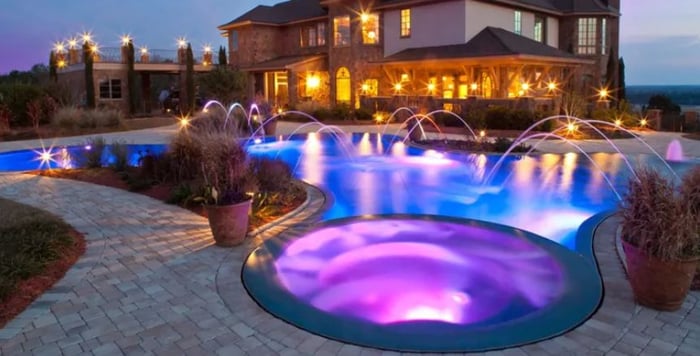Your pool’s pump is one of its most important components. It is designed to push the water through a filter, keeping your pool clean and free of algae and scum. Without the pump, your pool can quickly go from sparkling and refreshing to dirty and gross in no time. Unfortunately, the pump is also one part of the pool that is most likely to have problems. The following is a list of the most common issues with swimming pool pumps.
The pump does not move water.
If you notice that your pump is not moving water you want to begin by checking the filter, skimmer, and pump baskets to be sure they are not clogged with debris. Another part that can become clogged is the pump’s impeller. This is the part of the pump that actually moves the water. You can check the impeller by opening up the pump. Another potential cause of no water flow is that your pump might have a leak in the suction line, and therefore is sucking air instead of water.
The pump is sucking air.
A normal pump should run without circulating air through the system. If you notice air bubbles coming from your pool returns, that is a sign that there could be a problem. One cause could be that the water level is too low. In this case, air can get into the skimmer lines and then be sucked into the pump. Another cause could be that the skimmer is full of debris and is clogged. This can lead to the skimmer opening being blocked, which forces air to be sucked into the skimmer line. Other causes for air getting sucked into the pump could be loose hoses or an inadequate seal on the pump lid, an o-ring, or a drain plug.
The motor is very loud.
Your relaxing dip in the pool can quickly turn into annoyance and frustration if you pump is noisy. This unwanted noise is usually the result of your pump motor needing new front bearings. While this is the most common cause for a noisy pump, the noise can also happen if the pump impeller is spinning very quickly without enough water. This is called cavitation and in this case you would want to check for a clog or closed valve.
The pump is losing power.
If your pump seems to be struggling to pump water and does not pump as much as it used to, it may just be worn out. Over time, older pumps can begin to deteriorate and lose power. In other cases, you might need to clean the filter or have it backwashed.
While this certainly does not cover all problems that are possible with your swimming pool pump, these are some of the most common. Be sure to keep your pump and other equipment well maintained in order to enjoy the most out of your swimming pool.




